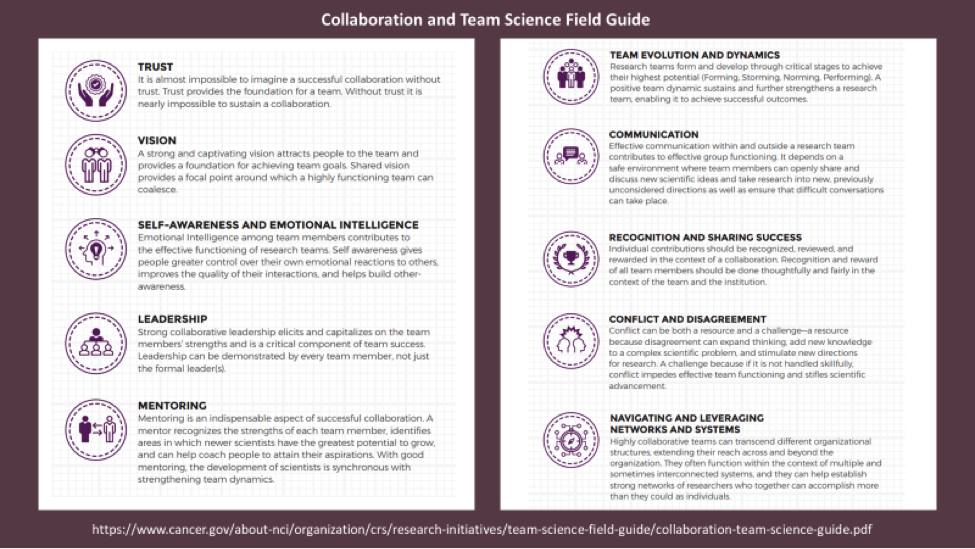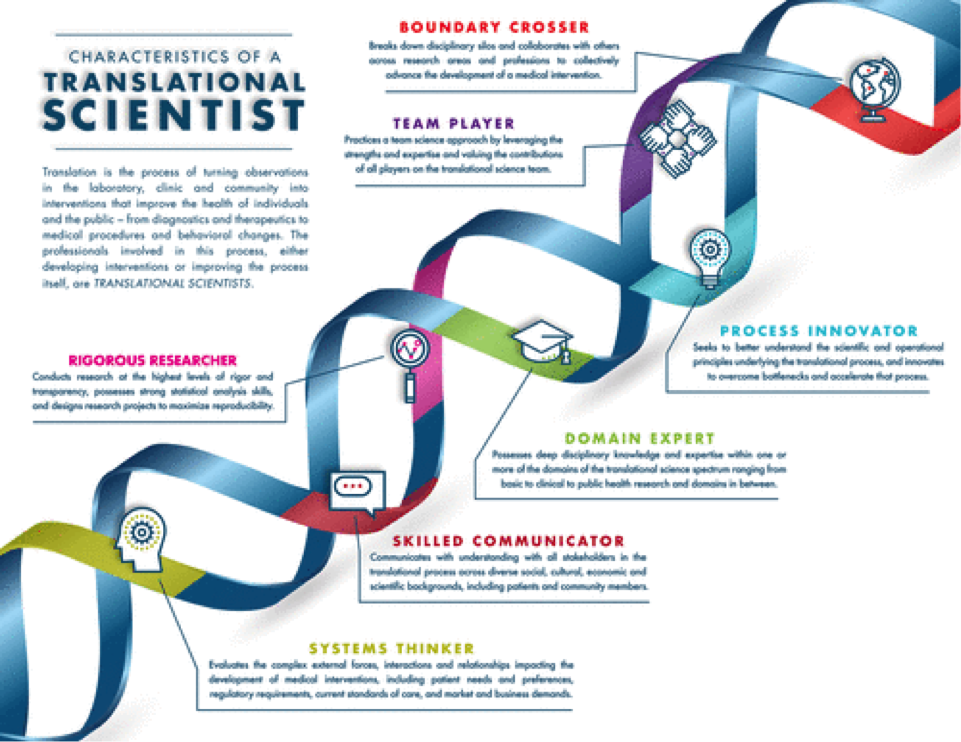Scientific research is increasingly being conducted by diverse teams with team members crossing disciplinary, geographic, and institutional barriers.
WHY? Science teams are becoming larger and more diverse teams in order to solve complex problems. Finding solutions to “wicked problems” and complex problems now facing our world such as climate change, violent crime, or water shortages, scientists need to work with teams of other scientists, community and industry partners. Working in diverse teams can pose a variety of challenges.
What are the principles for good teaming?

Characteristics of Translational Scientists
Tackling tough public health and environmental problems requires that researchers and community partners go beyond knowledge from one field. Teams need to embrace new skills and talents in order to develop innovative solutions to persistant problems like obesity, air pollution or food insecurity.

Teaming Workshops
GroundsWell is committed to expanding the capacity of the consortium to tackle tough problems and seek solutions that make sense in our local communities. As part of our work, we engage all our partners in workshops to build our skills in teaming.
- Co-creation of team and community vision
- Enhance emotional intelligence and social sensitivity practices
- Craft clear roles and responsibilities for all partners (scientists and community member alike)
- Transfer knowledge from one community to another
- Engage in creative problem-solving
- Develop habits for inclusive participation and recognition of diverse skills
- Build inter-cultural competence
- Refine collaborative leadership practices
- Expanding our university-community network strength
- Collaborative network mapping
